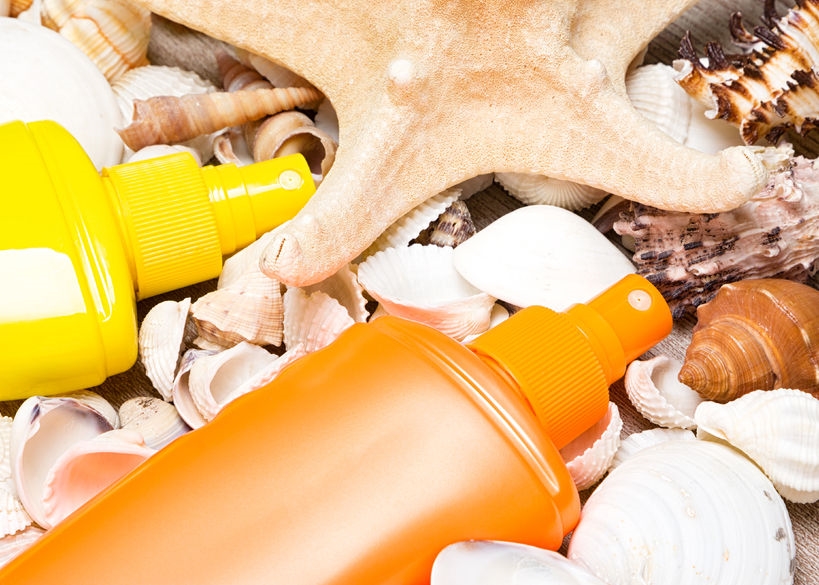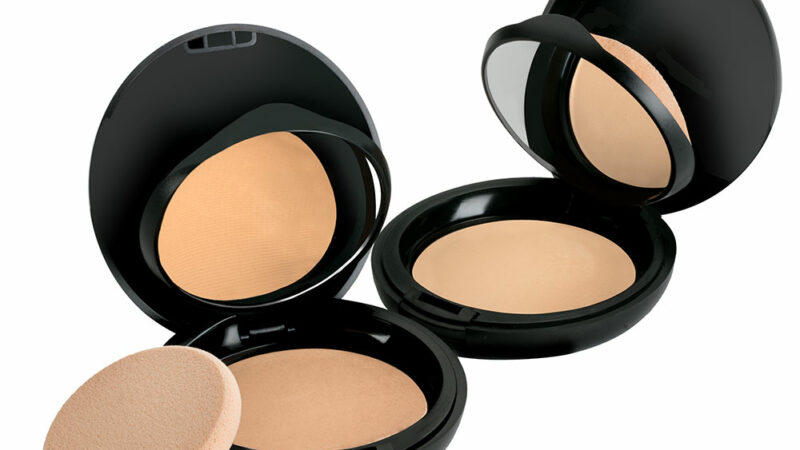When it comes to choosing a UV protective treatment, the sunscreen ingredients that make up the formulation are one of the most important factors to consider. In this post, let’s dive into the most commonly used sunscreen ingredients to determine which one may be best for you.
Chemical vs Physical Sunscreen Ingredients
Sun filtering agents can be broken down into one of two main categories – chemical blockers and physical blockers:
Chemical blocking agents (also referred to as organic ingredients) are absorbed by the skin’s top layer and work by absorbing the sun’s rays and turning them into harmless energy. Some chemical filters can also scatter UV rays, but that isn’t their primary function. They include ingredients such as Mexoryl SX, Mexoryl XL, Tinosorb S, Tinosorb M and older one like avobenzone and oxybenzone.
Physical blocking agents (also referred to as inorganic ingredients) work by sitting on top of the skin and blocking or deflecting UV rays. Studies have shown that just like organic ingredients, that they also have the ability to absorb UV rays. Zinc oxide and titanium oxide are the two physical blockers available today.
Sunscreens may be comprised of either chemical or physical ingredients or may contain a combination of both. Both types offer advantages and disadvantages.
- Chemical Sunscreen Ingredients are capable of delivering higher UVA protection, especially with the newer filters like Tinosorb S and M and Mexoryl SX and XL. They are capable of blocking both UVA and UVB rays and are often combined together to maximize their protection. They tend to go on clear and most do not leave a white cast upon application.
The downside of chemical ingredients is that they may be associated with allergic reactions, which is possibly problematic for sensitive skin. As well, several are associated with hormone disruption, with oxybenzone being the one implicated most. Two chemical sun filters – oxybenzone and octinoxate – have been associated with destruction of the coral reef and the State of Hawaii is hoping to ban sunscreens containing these two ingredients by 2021. - Physical Sunscreen Ingredients are the ideal choice for individuals with sensitive skin. Because they sit on top of the skin, they are not absorbed and are therefore less likely than chemical filters to cause allergic reactions. You have likely seen zinc oxide used in formulations to alleviate rashes in babies (diaper cream), where it is incorporated for its soothing and calming properties.
Sunscreens containing physical filters are also considered the product of choice for individuals with melasma (although both types are better than no sunscreen at all!). Zinc oxide blocks against the full UVA/UVB spectrum (so it can be the sole ingredient in a formulation) and titanium dioxide blocks against UVB and some UVA. If you are using a titanium dioxide based sunscreen, ensure that it is combined with ingredients that cover the full UVA spectrum.
The downside of physical sunscreens is that may feel heavy (because they aren’t absorbed) and they have been known to leave a white cast on skin. This effect can be minimized by using products formulated with nanoparticles. Studies have shown that nanoparticles in sunscreen don’t penetrate into the bloodstream if applied to intact skin so there shouldn’t be any safety concerns with their application. Our Shade SPF 30 is a fantastic product to consider if you are looking for a broad spectrum physical blocking sunscreen that does not leave a white cast upon application.
With the wide range of effective sunscreens today, it shouldn’t be too difficult to find one that works for you. Look for a formulation that fits your budget and your skin type without it feeling greasy or leaving you looking like a ghost. Keep these additional 3 tips in mind:
- Look for a product labelled as ‘broad spectrum’ to ensure protection against the full UVA/UVB spectrum
- Ensure you purchase something with a minimum SPF 30 for adequate protection
- If you are going to be active and/or swimming, select a water resistant formulation.
Sunscreen is the most important product to help protect your skin against sun damage. Find one you love and use it every day.




